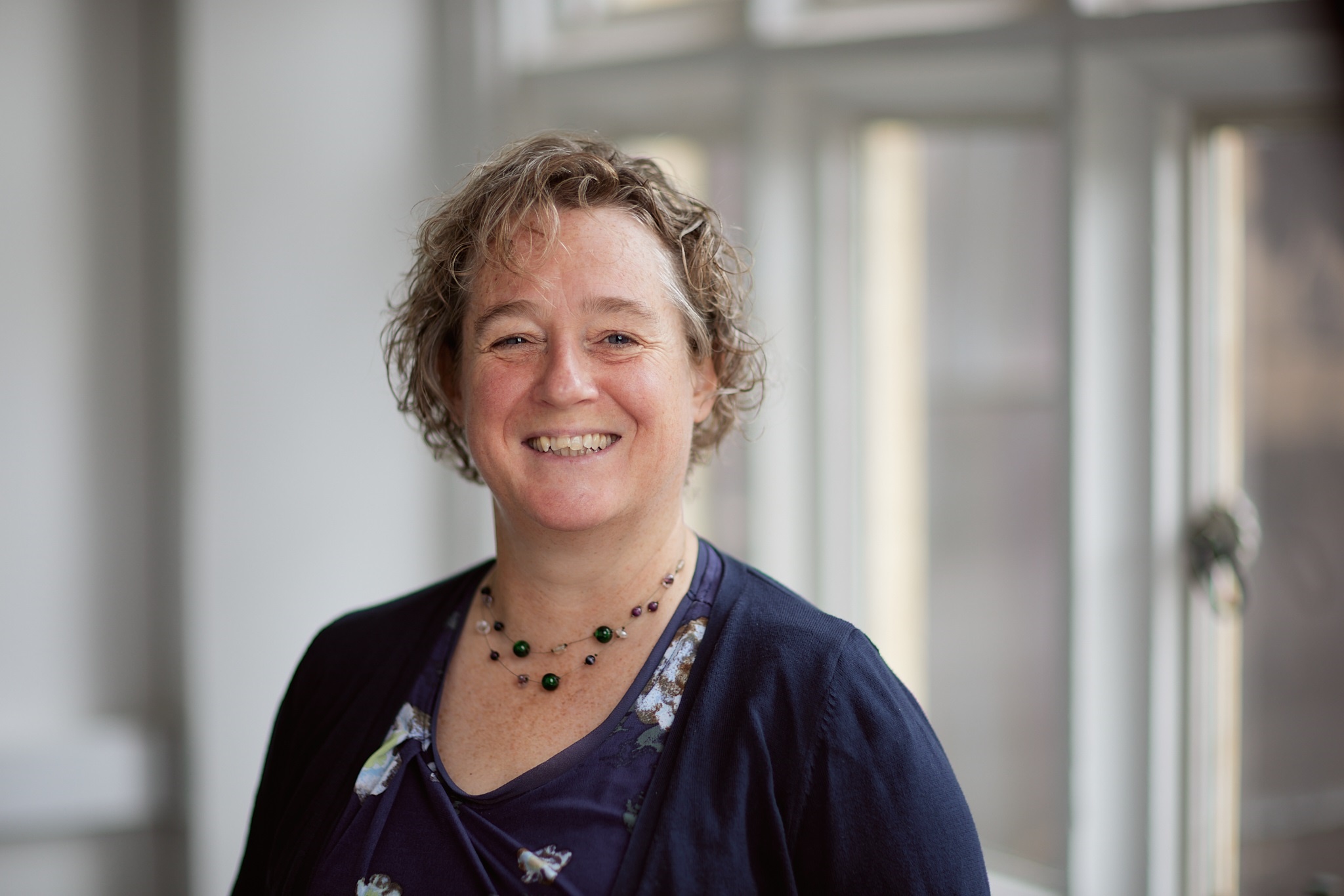
Breadcrumb
Introducing our new Director, Dr Catherine Porter
“What inspires me most about this amazing study is the huge potential it offers of combining twenty years of unique longitudinal data with innovative new research to continue making a real difference in improving young people’s lives. This is especially urgent in these times of unprecedented change and uncertainty” Dr Catherine Porter
Young Lives is delighted to introduce our new Director, Dr Catherine Porter, who took over leadership of the programme on 1st October 2021. In this introductory Q&A blog, Cath shares her ambition for the future of Young Lives, reflecting on the programme’s achievements over the last two decades and the challenges of managing longitudinal research during the pandemic.
Young Lives has been running for over twenty years; what inspires you most about the programme’s achievements over that time?
I have been involved with Young Lives since I first applied to write a paper as a PhD student. I then joined the programme in 2008 as a Research Officer to co-ordinate the third quantitative survey round, before leaving to become a postdoctoral researcher in economics and have been closely involved ever since. Most recently I’ve been providing support as a senior advisor to the ongoing Young Lives at Work COVID-19 phone surveys.
I believe Young Lives is truly unique and I’m incredibly excited to be taking the lead of the largest and most comprehensive mixed-methods longitudinal study in the developing world. Over the last two decades, it has delivered a treasure trove of open access data, charting the lives of 12,000 young people across four very different developing countries: Ethiopia, India, Peru and Vietnam.
Young Lives is an international leader in many areas of longitudinal research design and methodology, with impressive institutional and intellectual capital, particularly within our long-term country partners led by experienced Country Directors and Principal Investigators. We still have over eighty per cent of the original children remaining in the study after all this time, which is even more remarkable given the constraints of doing research in a global pandemic. So many young people have stayed with the study because of our exceptional cohort management strategies, which is a testament to the dedication and commitment of our fieldwork and research teams, many of whom I have had the privilege of meeting across the years. The skill of our fieldworkers in making a long list of survey questions seem like a relaxed conversation is truly remarkable!
Young Lives has an impressive track record of delivering research to policy impact. For example, our findings have shifted the global debate on tackling undernutrition by demonstrating the potential to reverse early growth stunting even into adolescence; strengthened early learning policies in Ethiopia and Peru; influenced national polices to address child marriage in India; and promoted curriculum development in Vietnam to deliver ‘21st century skills’ such as problem solving and critical thinking.
But what inspires me most about this amazing study and team is the huge potential it now offers of combining twenty years of unique longitudinal data with innovative new research, to continue making a real difference in improving young people’s lives. This is especially needed in these times of unprecedented change and uncertainty.
After many years of working with Young Lives, and now a Senior Lecturer in the Department of Economics at Lancaster University, can you tell us a little bit more about your experience and what you hope to bring to the role of Director?
As a development economist, one of my key areas of interest is how different risks affect the lives of poor people, including the impact of unexpected events (or ‘shocks’) on various outcomes such as nutrition, schooling and learning, and parental investments. I was inspired by the Live Aid concerts in 1984 to get involved in famine relief efforts, and subsequently used longitudinal data (the Ethiopian Rural Household Panel dataset) to evaluate the long-term consequences of that shocking famine on the children of Ethiopia in my paper, “Live Aid Revisited”, and have continued to use this type of data in my research ever since.
The field of development economics has been revolutionised by Randomised Control Trials, which have produced a wealth of important evidence, but some things (like droughts) simply cannot be randomised. Longitudinal data has the power to enable a holistic understanding of how life evolves according to a range of structural factors (location, age, gender, ethnicity, wealth), alongside the effects of specific external events that happen during the life course. In this way, Young Lives enables deep insights into how early childhood experiences impact later life outcomes.
I am also very committed to mixed-methods research, as I believe that qualitative and quantitative findings can really complement each other and lead to unexpected and new lines of research. For example, in our research on children’s work, using Young Lives data, we were able to evaluate trends over time and in different contexts using quantitative household and child surveys, as well as gain a better understanding of how children themselves view their roles and responsibilities through more in-depth qualitative interviews. This enabled us to analyse both the more obvious negative impacts of children’s work, as well as to unpick the potential benefits of moderate levels of work, including instilling a sense of pride in learning skills and supporting the family in times of need.
COVID-19 has, of course, been an unprecedented shock in the lives of people all around the world, and our recent research through the phone survey has enabled rapid investigation of how the social and economic consequences of the pandemic are impacting the lives of disadvantaged young people. The success of this research has in large part been due to the strength of on-going relationships with our participants, and I am so proud of the way the team has adapted to new ways of working.
As the new Director of Young Lives, one of my first tasks will be to refresh our strategic vision both in response to the pandemic and to develop new areas of research focus as our children transition into adulthood. When Young Lives began, our research themes and policy focus centred on poverty in response to the Millennium Development Goals. As the children have grown, we have seen many improvements in living standards compared to their parents, but persistent inequalities remain and are being further exacerbated by COVID-19. We now need to evolve our vision and put inequality at the heart of our research. This includes not just wealth inequality but also the intersection with gender and marginalised groups.
I want to build on Young Lives’ many strengths, including our successful collaborative working with others to maximise our reach and impact. This will mean identifying new partners as we evolve our research and policy focus, as well as developing existing partnerships with academics, policymakers and practitioners, including donors, international organisations and local NGOs.
How will you ensure Young Lives continues to deliver cutting-edge evidence and help make change happen in these challenging times for longitudinal research?
These are indeed challenging times for longitudinal research, both in terms of the pandemic and meeting demands for urgent policy recommendations. This makes working collaboratively even more critical to ensure our research and policy messages remain relevant and impactful.
Young Lives must also continue to work flexibly in response to changing contexts and new opportunities for change, both at the country and global level. Adapting our research to deliver an ambitious phone survey in 2020, is a good example of this, and our recent findings have led to a number of new areas of focus, including mental health, domestic violence and food security, which will be important to develop further.
Young Lives is very fortunate to receive continuing support from our primary donor partner, the UK’s Foreign, Commonwealth & Development Office (FCDO). As we move forward, I will also be working hard to expand our funding partnerships to take advantage of new opportunities and deliver our evolving research agenda.
I will also prioritise and develop our successful research to policy approach, encouraging early engagement with the people we are trying to influence and supporting our team to ensure we have the right influencing and communication strategies in place.
Looking forward, what are your ambitions for Young Lives?
As a longitudinal study, the strength of our data will continue to increase over time, with progressively more sophisticated analysis enabling intergenerational comparisons, as our cohorts enter late adolescence and early adulthood, many of whom now have children of their own.
Building on our internationally renowned mixed-methods approach, I am determined to maximise the power of combining both our quantitative and qualitative research. For example, our phone surveys have highlighted increasing household work and caring responsibilities for girls and young women, and new qualitative fieldwork research could help to unpack the underlying reasons for this, in ways that our quantitative survey cannot.
There is huge scope for Young Lives to continue to innovate when we hopefully get back into the field for our sixth quantitative survey in 2023. For example, including “free text” writing in the survey design will further allow young people to express themselves in their own words. This can then be analysed using both qualitative and quantitative machine learning techniques, then cross-referenced with some of our previous data on personality development to generate important new insights into the kind of skills that young people have to help them navigate an ever more competitive labour market.
I want to explore other exciting new avenues for our research agenda, including the potential of tracking a first of its kind ‘COVID-19 cohort’, focusing on babies conceived or born during the pandemic period. This would allow us to assess how inequality, gender and Covid-19 affect outcomes for newly born children and assess development outcomes in and beyond the critical first 1000 days, including pre-school experiences.
I also want to explore new opportunities for increasing our impact through targeted data matching analysis. For example, we are already building up new research evidence on areas such as climate change, through matching our longitudinal data with historic rainfall data, allowing us to better understand the impact of climate shocks in early childhood on later education and employment outcomes.
I am really looking forward to getting stuck in and leading our exceptional Young Lives team as we work through these ideas and chart a new path for this unique study.

